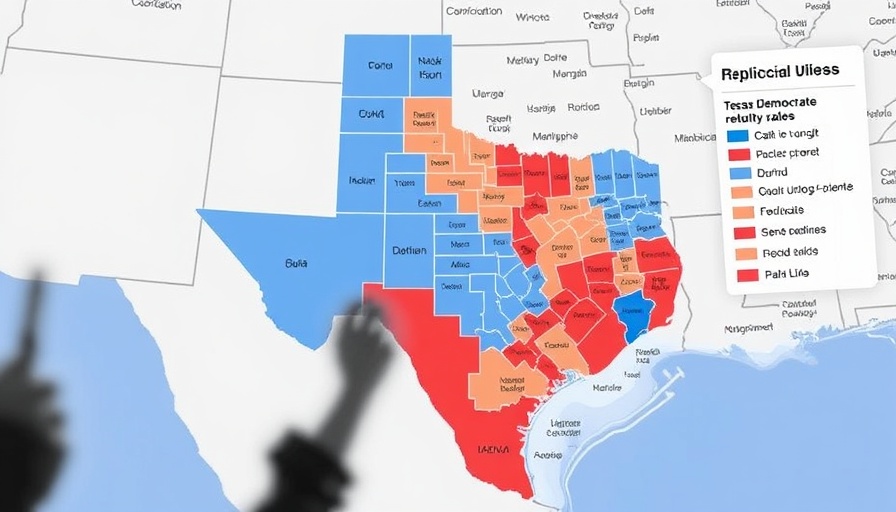
Texas Redistricting: A Battle for Political Power
The stakes couldn’t be higher as Texas legislators find themselves in a contentious standoff over a proposed congressional map that aims to amplify Republican influence. As tensions rise within the Texas state House, Democratic lawmakers have taken drastic action, leaving the state to thwart a vote on the controversial map. This marks the latest chapter in an ongoing struggle that intertwines politics, governance, and representation.
Understanding the Context of Redistricting
Redistricting occurs every ten years, following the census, to reflect population changes and ensure fair representation. In Texas, where Republican dominance has been pronounced, any new map holds the potential to entrench party power further. Currently, the proposed map is believed to favor Republicans, prompting Democratic legislators to resist what they view as gerrymandering—manipulating electoral district boundaries to benefit a particular political party.
The Democrats' Response: A Bold Move
In a strategic departure from the state, Texas Democrats have decided to leave, rendering a quorum impossible and thereby blocking a vote on the proposed map. This dramatic maneuver highlights the contentious nature of modern political battles and reflects broader national trends where state-level decisions are fiercely contested.
The Governor's Threat: Escalation of Conflict
In response, Texas Governor Greg Abbott has issued warnings to expel those Democratic legislators who fled the state. This development underlines the heightened tensions and possible retaliatory actions that may ensue as both parties navigate the murky waters of partisan politics.
Impact on Voter Representation
Critics of the proposed map argue that it would dilute the voting power of minority groups, raising concerns about fairness and equity in representation. Understanding the implications of redistricting is crucial, as it can either enhance or undermine democracy depending on how fairly the process is implemented.
Looking Ahead: What’s Next for Texas?
As lawmakers head into recess, federal and state political dynamics are at a crossroads. Upcoming town halls hosted by various lawmakers will provide citizens with opportunities to voice concerns and engage directly with their elected representatives. The outcome of this standoff could reshape Texas politics in profound ways, highlighting the importance of civic engagement in local governance.
Broader Implications for U.S. Politics
This Texas redistricting clash is not an isolated incident but reflects a national trend where states are witnessing intense battles over electoral boundaries. The outcomes set in Texas could serve as a bellwether for similar disputes across the country, affecting the balance of power well beyond state lines.
Take Action: Engage With Your Representatives
The political landscape is evolving rapidly, and your voice matters. Attend town halls, engage in community discussions, and advocate for fair representation in your state. Keeping informed and involved is the first step to ensuring your vote is not only heard but has meaningful impact.
 Add Row
Add Row  Add
Add 




Write A Comment